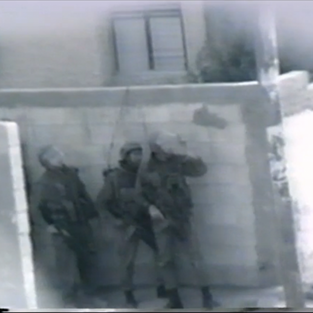Nesting: The Visual Landscape of Settler Colonialism
- Majd Qumseya
- Aug 29, 2016
- 2 min read
Monday, June 19, 2016 at 7pm
The Center for Contemporary Art
Admission: 10 ILS
Inspired by Gaston Zvi Ickowicz’s exhibition, Nesting, this panel looks at the visual culture of settler colonialism to ask questions such as: How are notions of landscape both usurped by dominant powers and used as a form of cultural resistance? And what is the nature of collective home building in a place like Israel/Palestine? Ariel Handel will focus on different aspects of the city of Rawabi, whose modern design, on the one hand, makes it a sort of “Palestinian settlement,” while, on the other hand, the desire for normality in the form of a typical suburb produces daily political resistance.
Ruth Ginsburg will discuss how documentary photography in the Occupied Territories developed along with human rights violations in the area. The most well-known documentation project today is B’Tselem’s Camera Project. The discussion will extend beyond the factual aspect of the project to discuss broader visual culture via a screening of the film “Palestinian Diaries” (1991), initiated by international media and film professionals who chronicled the beginnings of arming Palestinians with cameras to document their lives.
Alon Cohen-Lifshitz will lead the audience through the Palestinian life experience in the Occupied Territories via various scales ranging from encompassing all of the West Bank to focusing on a single building. Cohen-Lifshitz will use photos, maps, and aerial photographs to illustrate how Israel creates a matrix of control over the West Bank and how life carries on there. Moderator: Sergio Edelsztein, CCA Director and Chief Curator
ABOUT THE SPEAKERS
Alon Cohen-Lifshitz Alon Cohen-Lifshitz is an artist and architect who graduated from the Bezalel School of Art and Design. He has worked for over a decade at “Bimkom – Planners for Planning Rights,” an NGO that strengthens democracy and human rights in the field of planning in Israel/Palestine. Cohen-Lifshitz is coordinating the activities of the organization in the West Bank. As an artist, he focuses on the gaps and overlaps of art and architecture by building spaces, intervening in existing spaces, and working in indoor and outdoor public space.
Ariel Handel Dr. Ariel Handel is the director of the Lexicon for Political Theory project and a co-director of the Minerva Humanities Center at Tel Aviv University. His research projects focus on human mobilities in the West Bank and the Gaza Strip, mapping and spatial representations, and the political philosophy of geography. Handel is the editor-in-chief of The Political Lexicon of the Social Protest (Hakibutz Hameuchad, 2012), and a co-editor of Normalizing Occupation: Making of the Jewish Settlements in the West Bank (Indiana University Press, 2017).
Ruthie Ginsburg Dr. Ruthie Ginsburg is a visual culture researcher. She teaches photography, visual culture and gender at the History and Theory Department of the Bezalel Academy of Art and Design, Tel-Aviv University, and Ben-Gurion University. Ginsburg leads the Photo-Lexic research group at Minerva Humanities Center at the Tel-Aviv University. Her Book “And You Will Serve as Eyes for Us, Israeli Human Rights Organizations as Seen Through the Camera’s Eye,” was published by Resling Publishing House (2014).








Comments